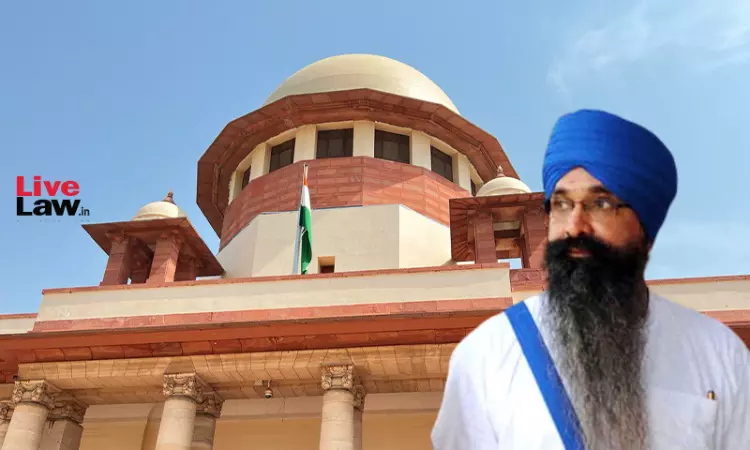Supreme Court To Hear Death Row Convict Balwant Singh's Plea To Decide Mercy Petition Next Week
Gursimran Kaur Bakshi
18 Nov 2024 11:30 AM IST

Next Story
18 Nov 2024 11:30 AM IST
Update - The report was updated after the Supreme Court agreed to not upload the order which was dictated, following a request made by the Solicitor General at 1 PM. The report was prepared on the basis of the oral dictation. At 1 PM, the Court agreed to not upload the order and posted the matter to hear the Union on November 25. The Supreme Court today (November 18) directed the...
